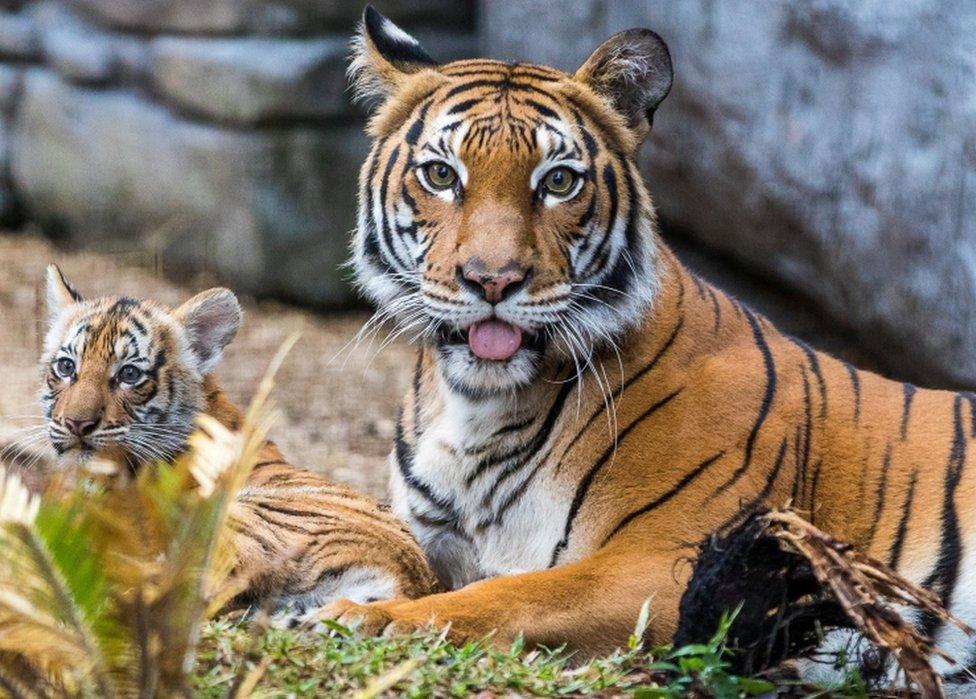UAE outlaws keeping wild animals as pets
- Published

Citizens of the UAE will be banned from keeping big cats and other wild animals as pets
The United Arab Emirates (UAE) has outlawed the keeping of wild animals, like lions or tigers, as pets.
For some in the oil-rich Gulf State, owning the likes of a cheetah is a status symbol, but they now risk jail or a fine.
Big cats have been pictured being taken on walks in social media postings.
Past pictures featured lions in the back of cars, and a video emerged in October showing five tigers on a beach in Dubai.
Unsurprisingly, officials are concerned about the dangers posed by freely-roaming animals.
The new law bans dealing in and ownership of "all types of wild and domesticated but dangerous animals," the Gulf News reported.
These animals can now only be kept in zoos, wildlife parks, circuses, and breeding and research centres.
Anyone who takes a big cat or any other kind of exotic animal out in public will face up to six months in jail and a fine of up to 500,000 dirhams ($136,000; £110,883).
Arabic daily Al-Ittihad said that would increase to 700,000 dirhams for anyone using wild animals to "terrorise" others.
Keepers of more traditional pets will also be affected by the new law. Dog owners will have to obtain permits and keep their animals on the lead in public.
Failure to do so could trigger a fine of up to 100,000 dirhams. The same penalty applies to owners who fail to vaccinate their dogs against dangerous diseases.
Dog lovers have until mid-June to acquire the necessary licence and jabs.
- Published21 January 2015
- Published24 November 2014
- Published8 May 2014